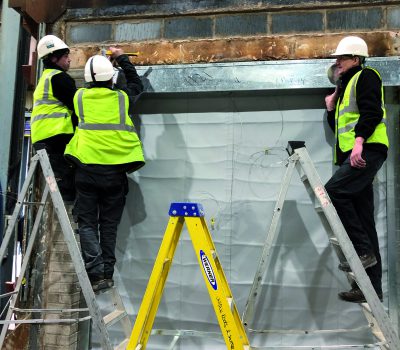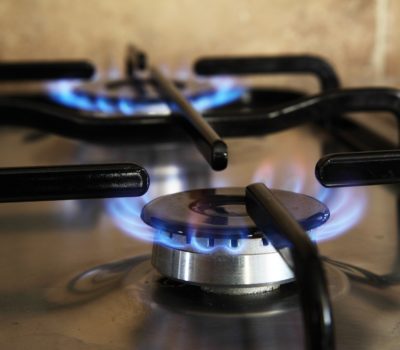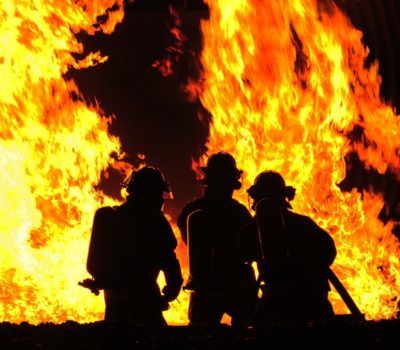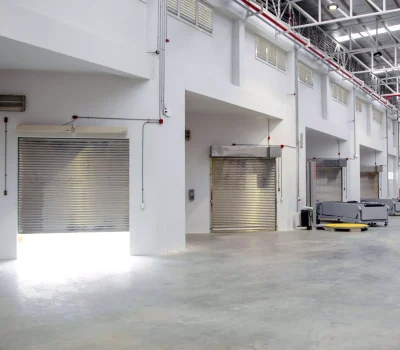Fire Safety in Hotels
Fire safety is a key concern in every building and none more so than a hotel. Several factors increase the risk of fires in hotels and make them more dangerous if they occur:
- A large number of guests and staff must be evacuated safely and accounted for, some of whom may have mobility requirements
- Guests who are unfamiliar with the layout of the building, the location of fire exits and the evacuation procedure
- The privacy that individual rooms offer residents – if someone starts an accidental fire, perhaps having lit a candle then fallen asleep, if takes longer for the alarm to be raised
- Commercial scale kitchens running high-powered electrical appliances and multiple gas stoves
- A large number of electrical sockets and appliances throughout the building
- Hotels are generally large buildings with open-plan areas and corridors that allow smoke and fire to spread quickly
- Leisure facilities or guests celebrating elsewhere and returning to their hotel rooms – fire safety precautions tend to be forgotten by tipsy people!
What are the Fire Safety Regulations for Hotels?
The Fire Safety Order (FSO) specifies the regulations and guidelines that all businesses and commercial building owners must comply with to ensure the safety of property and people. This is so that fires can be prevented and, should one break out, both customers and staff can evacuate safely.
Let’s take a look at how FSO regulations and guidelines apply to hotels
Fire Risk Assessment
All hotels must complete a comprehensive fire risk assessment. Regular checks of the entire building should be undertaken to identify any fire hazards and to ensure that any fire doors are not damaged or being used incorrectly. Fire doors must be kept closed and not wedged open. Hazards, such as exposed wiring or clutter kept in escape routes, must be removed.
Fire risk assessments should be an ongoing process carried out on a regular, frequent basis. This allows for any problems to be identified quickly and resolved before they endanger staff or guests. Remember, a fire risk assessment isn’t just a bothersome ‘box ticking’ exercise carried out once a year – it could save someone’s life.
Staff Training
All employees should have full training in fire safety and how to reduce the risks of fires breaking out. This should also include learning how to use various fire extinguishers on different types of fires.
Staff must be familiar with all the hotel’s designated escape routes, and what to do in an emergency. Training should be carried out regularly throughout the year. Ideally, the first session should be delivered during induction to ensure that all staff have an acceptable level of skills and knowledge from the first day of employment onwards.
Maintaining clear evacuation routes in case of emergency.
Evacuation routes should be clearly marked and accessible to all guests and staff.
The following hazards are commonly found in hotels:
- Wedged open fire doors. This is dangerous as fire and smoke will be able to spread easily in the event of a fire rather than being contained. This will make evacuation difficult as corridors will become full of smoke and could cause harm to people due to smoke inhalation.
- Corridors cluttered with stored furniture, cleaning products etc will make escape difficult – especially if visibility is reduced. This also causes problems for firefighters who are trying to access and control the blaze.
- Confusing signage
- Inaccessible stairwells and problematic access for people with mobility issues
What Does the Law Say?
The Fire Safety Order (FSO) specifies the legal regulations in England and Wales. It states that one person, usually the owner or manager, is responsible and in charge of ensuring compliance.
This person may nominate a competent member of staff to deal with fire training and to ensure daily compliance with regulations if they prefer to delegate. However, the ultimate responsibility rests with them.
There are unlimited fines for breaches of regulations. The person responsible for fire safety is prosecuted as an individual rather than the company being considered liable. Of course, there is also significant damage caused to a company’s reputation when preventable accidents occur.
Fire Curtains for Hotels
Fire curtains are often an ideal fire safety solution to use in hotels. They are designed to slow down the spread of smoke or flames. This gives people more time to evacuate and reduces damage to the building and property that occurs before the fire is extinguished.
Fire curtains are used in doorways and other entrances, rooms and corridors. This makes them ideal to partition open-plan spaces and areas where fire and smoke spread. extremely quickly.
Fire curtains can be tailored to fit various spaces and manufactured in all sizes. Larger curtains can even be used to create a barrier across the width of a room. Or, smaller curtains can be used to create multiple barriers. One of the major benefits of fire curtains is that they don’t take up valuable space. Fire curtains are rarely noticed before they’re activated when a fire occurs.
Learn More and Protect your Premises
To read more about fire curtains, take a look at this blog:
Alternatively, give our expert team a call or drop us an email to discuss hotel fire safety solutions. We’re happy to talk you through your options and help you decide if installing fire curtains is the best option for you.
Freephone: 0800 092 1588
Landline: 0191 501 6779
[email protected]





